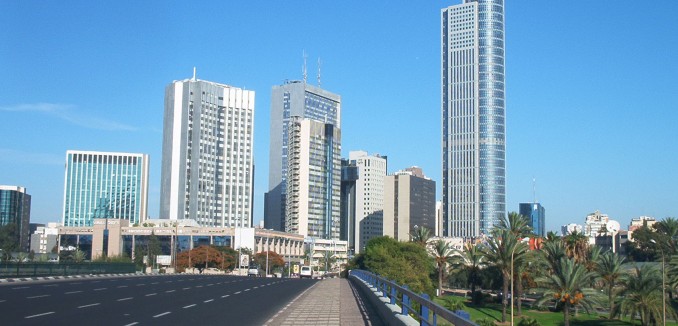International credit rating agency Moody’s reported Tuesday that Israel’s investment grade remains at an A1 sovereign rating, and that the country’s economy maintains a stable outlook, despite this summer’s conflict with Hamas. The A1 ranking is fifth highest on Moody’s scale, reflecting a mid to upper grade investment climate with a low credit risk. This indicates that investors have a good chance of being repaid, and will consequently have an easier time attracting capital.
Moody’s attributes the favorable rating to Israel’s “resilient growth model and effective governance,” explaining:
Key to Israel’s economic dynamism is a high-tech export sector that benefits from the country’s well-educated, relatively young population, as well as one of the highest levels of per capita investment in research and development. Foreign capital inflows are also substantial, as evidenced by the recent decision of Intel to build its $6 billion new chip plant there.
The report notes that the economy’s growth began slowing before the summer, mostly due to the “negative impact on exports of a steeply appreciating currency”. Additional defense spending prompted by the conflict with Hamas has also hindered plans for reducing the government’s budget deficit.
Moody’s contends that this summer’s war will have put a “significant dent in third quarter growth,” and that persistent geopolitical risks will continue to jeopardize public finances and constrain investment ratings. These risks include “territorial disputes with the Palestinians, intense civil strife in Egypt and Syria and the stand-off with Iran over its nuclear program.”
Nonetheless, favorable market conditions contributed to a predominantly positive overview of Israel’s economy, and Moody’s senior vice president Kristin Lindow was quoted forecasting that “growth is likely to pick up next year due to the impact of easier monetary policy and the associated weakening of the shekel since late July. Israel will benefit from stronger growth of the US economy, its most important trading partner, and the more modest pickup in European growth.”
Notably, a September 21 report released by fellow international credit ranking agency Standard & Poor’s (S&P), which reaffirmed Israel’s consistent A+ sovereign debt rating and stable outlook, argued that Israel’s economy remained largely unaffected by the summer war with Hamas. In its announcement, S&P explained:
In our view, the recent Gaza conflict will lead to only a modest weakening of Israel’s fiscal trajectory. Although Israel may temporarily reverse its fiscal consolidation, we expect its gross general government debt ratio to remain largely flat in the next three years. The stable outlook reflects our view that the government will maintain stable public finances and that the impact of security risks on the Israeli economy will be contained. The fighting has not changed our view of Israel’s core credit strengths, such as its prosperous and diverse economy, the contribution of natural gas production to a healthy external balance, and its relatively flexible monetary framework.
Moody’s 2014 report mirrors the agency’s 2013 assessment of the Israeli economy, which praised its resilience, growth and “latent dynamism”. In 2012, Israel was recognized as the only country to have reduced its debt-to-GDP ratio among the Western nations.
[Photo: Talgraf777 / Wikimedia Commons]




